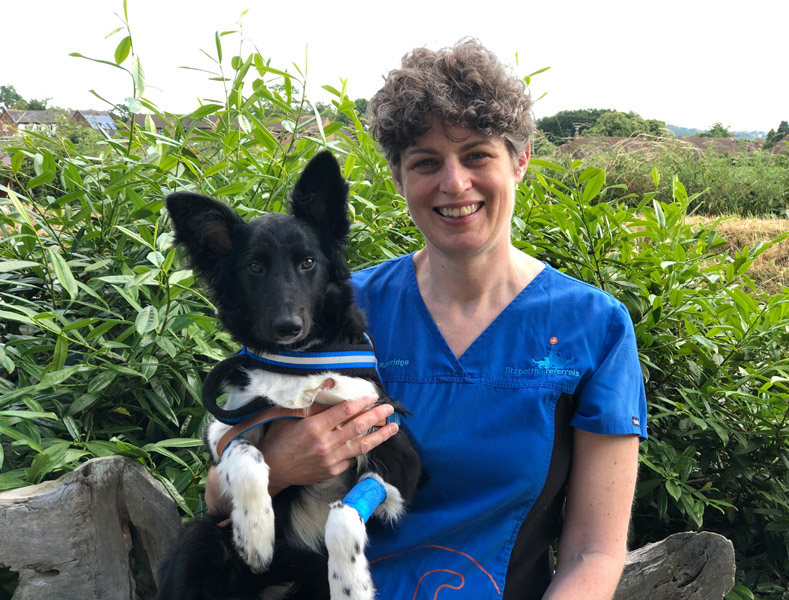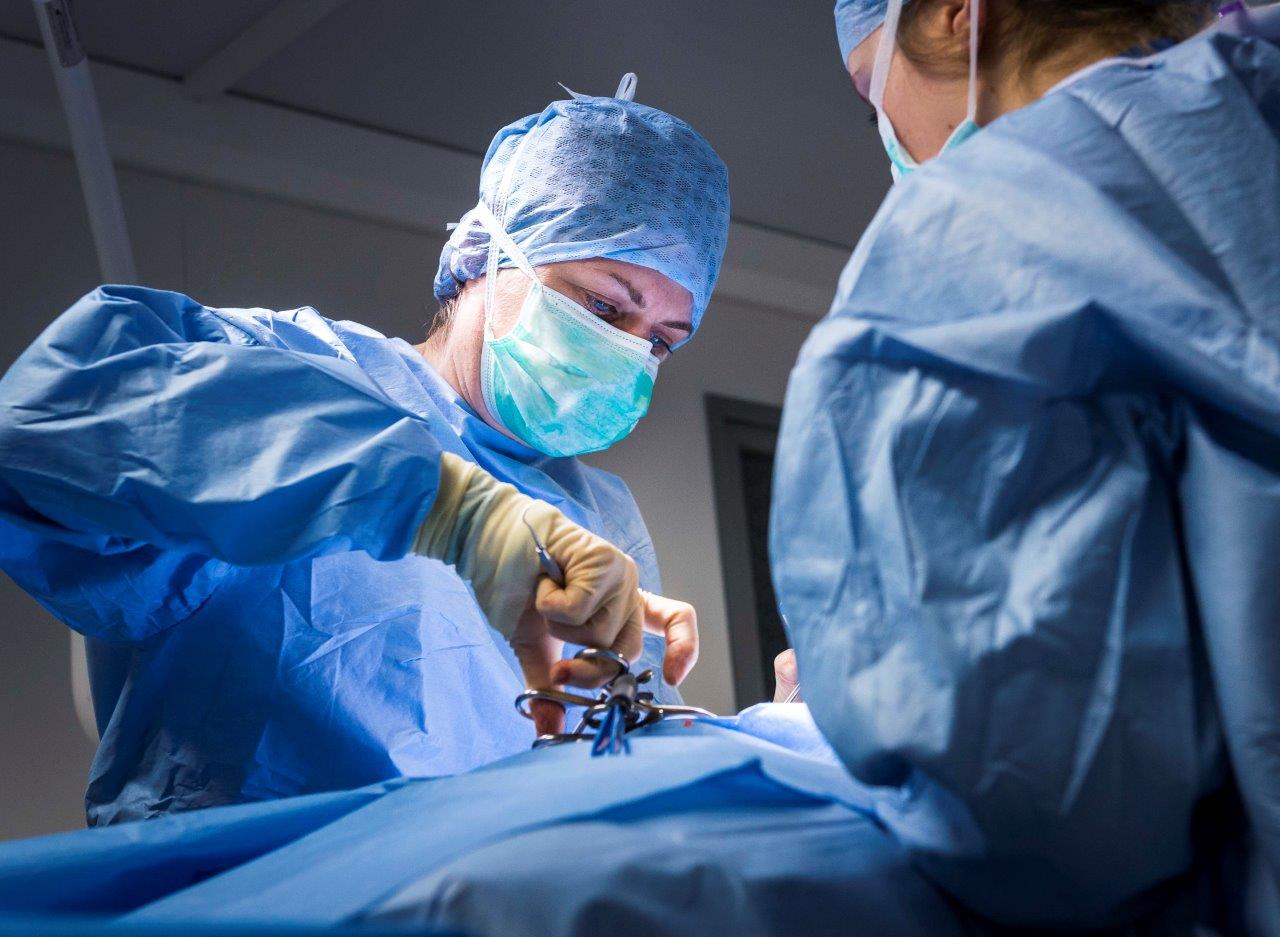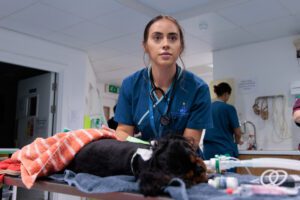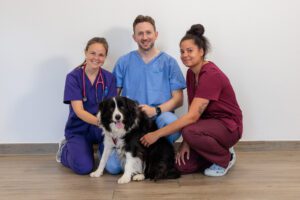Congratulations Professor Clare Rusbridge!
Last month, Clare Rusbridge, our Chief of Neurology, was awarded her professorship from the University of Surrey, in recognition for her postdoctoral research and teaching at the School of Veterinary Medicine. Clare has answered a Q&A on her career working for both the university and as a specialist at our referral practice.
How long have you been involved with the School of Veterinary Medicine at the University of Surrey?
I took up a joint role with the University of Surrey and Fitzpatrick Referrals five years ago.
What appealed to you about the idea of a joint appointment with the University of Surrey and Fitzpatrick Referrals?
I have always worn the dual hats of clinician and researcher. Before I took on my current role, I worked in private referral practice three days a week and spent the remaining two days dedicated to my research on Chiari-like malformation and syringomyelia, which received very little funding. The establishment of a Vet School at the University of Surrey presented a fantastic opportunity. It gave me the support for my research that I couldn’t get working as a sole veterinary surgeon. Simultaneously, I joined Surrey’s partner practice, Fitzpatrick Referrals, which presented new opportunities, with its incredible facilities and talented team; including a dedicated team of physiotherapists.
What has your experience been to date?
Very positive. I like having the mix of patients, clinical research and teaching. Much as I enjoy each of those three aspects of being a vet I would not like to do either on a full-time basis.
Each of my roles is demanding; I have learnt to be efficient with time management and often work long hours to achieve all that I want to achieve.
How do you feel students benefit from an approach to learning which engages clinical specialists/researchers such as yourself, as well as first opinion practitioners?
George Bernard Shaw said “he who can does; he who cannot teaches” – this is not true at Surrey because the students gain from the experience of those that “do”.
It is very important that the modern vet has the experience of both. The clinical specialist can impart greater depth and understanding of that small section of veterinary medicine, but their experience is very different to that of the general practitioner at the cutting edge, who doesn’t have the luxury of a client consultation nor a base of motivated clients. It requires a different set of skills and it is important that future vets gain from the experience of both specialists and practitioners.
Do you think that being directly involved with University teaching and research will have a positive impact upon individuals and the career choices that they will make?
We have many inspirational teachers at the university. I hope to inspire students to understand that clinical research is a doable and vital part of veterinary medicine and that working as a specialist vet is exciting and rewarding. I also do this as a woman with children (and a very supportive husband!).
What have been the benefits to both you and the students of the partnership between Surrey Uni and Fitzpatrick Referrals?
From my perspective, I have the advantage of a large clinical case load. Each diagnosis is made with state-of-the-art equipment and corners haven’t been cut to maximise profits. For example, our magnetic resonance imaging (MRI) is excellent quality and very comprehensive.
The Fitzpatrick ethos is to encourage to push boundaries in terms of pioneering treatment whilst ensuring the welfare of the pet and caring about the family.

University of Surrey students benefit both from the clinical material being available for teaching purposes and I have also been able to instigate a number of student research projects. The findings from these projects will be used to help the animals that have these diseases.
One of the most positive aspects for me is the collaboration with other experts in their field at Surrey University. I have exciting collaborations with Dr Cirovic in bioengineering who is working on computer simulation of syringomyelia and Dr Wells in Medical Imaging on a machine learning technique to improve diagnosis.
What are your plans for the future? Any exciting projects?
I will continue my work into canine Chiari malformation and syringomyelia. In particular, we are focusing on improving diagnosis via our machine learning project, understanding syringomyelia and modelling surgery via our computer simulation project, the genetics of the condition in collaboration with the University of Montreal and improving medical and surgical treatment at Fitzpatrick Referrals.
Read more about our Neurology Service
4 minute read
In this article




